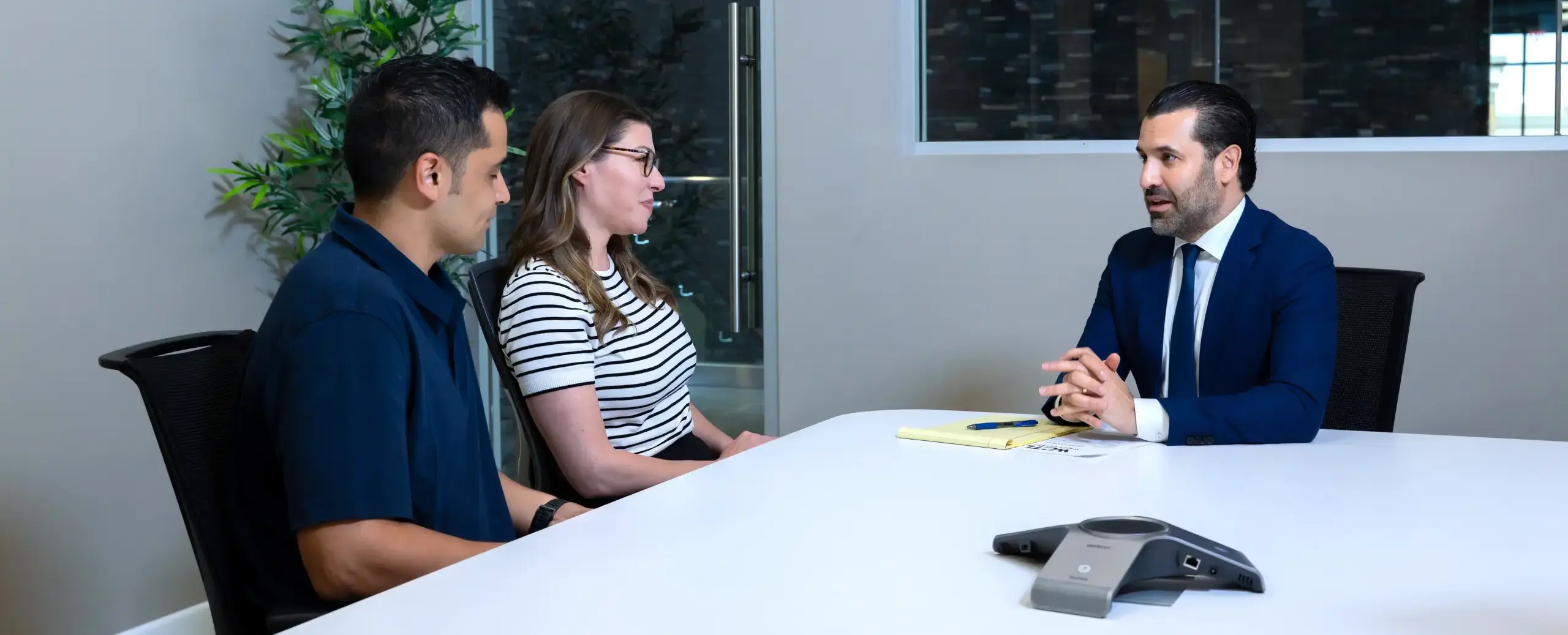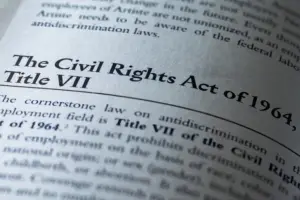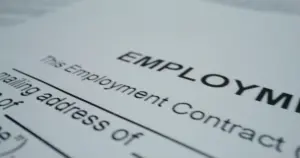Being pregnant should not put your job at risk, yet many employees face discrimination related to pregnancy or childbirth. Denied accommodations, reduced duties, demotions, and wrongful termination can all carry serious financial, professional, and emotional consequences. The effects of pregnancy-related discrimination can be subtle, and at times, hidden in assumptions about an employee’s ability to fulfill job duties.
At West Coast Employment Lawyers, our pregnancy discrimination attorneys can help pregnant employees by providing personalized guidance and strong legal representation. We work closely with clients to evaluate the situation, go over their rights under federal and state laws, and outline legal options for pursuing a claim. With extensive knowledge and experience handling discrimination cases, we are dedicated to protect our clients and ensure that every action we take is in your best interest.
Our law firm works under a contingency-fee basis, meaning you owe us nothing unless we successfully settle your case. To book a FREE consultation, you can connect with us by calling (213) 927-3700 or filling out our easy online contact form.
Why Choose West Coast Employment Lawyers?

We handle pregnancy discrimination cases and all forms of gender discrimination, recognizing the unique obstacles working mothers face in the workplace. Whether it involves hiring, accommodations, leave, or termination, our team is committed to protecting the rights of female employees and ensuring that employers obey the law.
Available 24/7
We are available around the clock to take your call and provide support at any time.
Clients Come First
Our clients come first, always. Every decision we make is focused on serving their needs.
Proven Track Record
Our proven track record shows our ability to manage challenging cases effectively. We prioritize our clients’ goals all throughout the legal process to ensure we deliver the best possible outcome.
No Upfront Legal Fees
We do not require any upfront legal fees. You only pay if we successfully recover compensation on your behalf.
Large Multilingual Staff
Our firm has a large multilingual staff to help clients in the language they are most comfortable with. This allows us to provide clear communication and personalized support throughout the duration of your case.
What Is Pregnancy Discrimination?
Pregnancy discrimination is when unfair treatment is given to an employee or a job applicant because they are pregnant, have a pregnancy-related medical condition, recently given birth, or are caring for a newborn child. This can affect hiring decisions, job duties, promotions, pay, or continued employment. Such behavior usually stems from assumptions made about whether a person has the ability to work during or after pregnancy.
This type of conduct has affected women across all demographics. According to a 2022 survey by the Bipartisan Policy Center, about 1 in 5 mothers (20%) reported experiencing pregnancy discrimination whereas 23% considered quitting because of inadequate accommodations or fear of bias.
Witnessing pregnancy discrimination is also fairly common. Roughly 12% of all adults and 20% of parents have seen it happen in the workplace, with younger adults twice as likely to report it. Millennial women (18%) are more inclined than other generations to report seeing pregnancy discrimination. Over 1 in 5 mothers have been afraid to let their employer know about a pregnancy. And nearly 1 in 4 fathers say their spouse or partner has faced pregnancy discrimination in the workplace.
What Are Examples of Pregnancy Discrimination?
Examples of pregnancy discrimination include cases where pregnant employees are denied reasonable accommodations for medical condition-related needs, including a lighter work load, additional breaks, or temporary schedule changes. While employers may refuse accommodation if it causes undue hardship, they are required to engage in a good-faith interactive process rather than just automatically denying a request without a justifiable reason behind the decision.
Pregnancy discrimination can take a toll on new mothers, particularly when an employer penalizes them for taking a pregnancy disability leave or other legally protected time off. Certain factors that can affect their employment status include refusal to be reinstated to the same or comparable position or facing stricter performance standards after they return.
Employers are not required to provide accommodations that would cause undue hardship. But, they cannot use assumptions or convenience as a reason to treat employees unfairly because of pregnancy, childbirth, or related medical conditions.
What Is the New Law Protecting Pregnant Employees?
Many federal and state laws work together to protect pregnant employees from facing discrimination, ensuring reasonable accommodations, and providing equal treatment on the job.
Title VII of the Civil Rights Act of 1964
Federal law protects against pregnancy discrimination through Title VII of the Civil Rights Act of 1964, amended by the Pregnancy Discrimination Act (PDA). Employers with 15 or more employees cannot treat workers unfairly because of pregnancy, childbirth, or related medical conditions. Examples include denying employment to a qualified pregnant applicant or forcing an employee to leave when she can perform the job with accommodations.
The PDA ensures that pregnant employees are treated like others who are similar in their ability or inability to fulfill work-related tasks, and it applies to all aspects of employment, like hiring, promotions, pay, and job assignments.
Pregnancy Disability Leave
Pregnancy Disability Leave (PDL) allows up to four months of job-protected leave for disability because of pregnancy, childbirth, or related conditions. This is provided when a health care provider determines that an employee is unable to fulfill work-related duties or needs time off for certain reasons, like morning sickness, bed rest, or other pregnancy-related complications.
Family and Medical Leave Act
Federal protections also include Family and Medical Leave Act (FMLA). Eligible employees of covered employers are eligible to take up to 12 weeks of unpaid, job-protected leave for the birth and care of a newborn child or for their own health condition.
This is applicable to both birth and bonding with a new child, and helps ensure that employees are given time off without having to lose their job or health insurance coverage.
Pregnant Workers Fairness Act
The Pregnant Workers Fairness Act (PWFA) is a newer federal law that became effective on June 27, 2023. This regulation requires employers (with 15 or more employees) to provide reasonable accommodations for an employee’s known limitations related to pregnancy, childbirth, or medical condition-related needs unless doing so would create undue hardship.
This means that employers will have to participate in an interactive process to figure out what accommodations will allow pregnant employees to continue if they are able to perform their job with added adjustments.
California Fair Employment and Housing Act
The California Fair Employment and Housing Act (FEHA) prohibits discrimination based on pregnancy, childbirth, or related medical conditions and requires reasonable accommodations. This applies to employers with 5 or more employees and covers hiring, job assignments, promotions, pay, training opportunities, and termination. If an employer is caught violating this law, affected workers can file a claim and hold them accountable for their negligent and/or reckless actions.
Federal Employee Paid Leave Act
Expanding on FMLA’s leave protections, the Federal Employee Paid Leave Act (FEPLA) provides eligible federal employees paid parental leave after the birth of a child or when a child is placed with them for adoption or foster care. It updates the FMLA leave rule so that eligible workers can get up to 12 weeks of paid leave, starting with births or placements on or after October 1, 2020.
California Family Rights Act
Under the California Family Rights Act (CFRA), qualified employees may take additional job protected leave for baby bonding after PDL ends. CFRA gives up to 12 weeks of bonding leave after childbirth and gives employees time to care for their baby once they are no longer medically disabled from pregnancy or childbirth. It is important to note that both parents are able to take this protected leave as the California law is designed to ensure both parents are available to take care of new born children and not place too much stress on one parent.
Does My Job Have to Accommodate Me if I’m Pregnant?
In most cases, your job may be required to accommodate you if you are pregnant. Under federal and state employment laws, employers should provide reasonable accommodations for pregnancy, childbirth, and related conditions just as long as it does not create undue hardship for the business. These adjustments are made to help employees continue working safely and effectively during pregnancy.
Accommodations can include:
- Light duty
- Modified job tasks
- Schedule changes
- More break time
This especially applies when pregnancy-related conditions are treated similarly to temporary disabilities. Employers may request for documentation to support an accommodation request. But, they cannot demand unnecessary or overly invasive information.
After childbirth, workplace obligations may continue. Laws protecting nursing mothers will require employers to give non-bathroom space to express breast milk during the workday.
How to Handle Pregnancy Discrimination at Work?
Handling pregnancy discrimination in the workplace will start with recognizing the behavior and taking steps to protect yourself. If you suspect discrimination related to pregnancy, childbirth, or a related condition, start by documenting everything. Note dates, comments, job duty changes, and disciplinary actions, and save any relevant emails, messages, or performance reviews.
Reach out to your employer or HR to discuss the matter. Going over the issue thoroughly can encourage the employer to take appropriate action. If the discrimination continues, you may have the option to file a complaint with a government agency, like the Equal Employment Opportunity Commission (EEOC) or a state civil rights department, or seek legal guidance from a pregnancy discrimination lawyer to know your rights and available options.
How to Prove Pregnancy Discrimination?
To show pregnancy discrimination, you must link your pregnancy to an adverse employment action, such as being fired, demoted, or denied accommodations. Begin by gathering evidence that you were qualified and doing your job well, yet faced different treatment after your employer learned about your pregnancy. Timing matters, especially if such actions happened soon after you shared the news.
Comparing how other employees were treated in similar circumstances can also help demonstrate discrimination. For instance, evidence that non-pregnant employees with equivalent work limitations received accommodations while you did not could support a claim. Written communications, changes made in job duties, and inconsistent explanations from the employer can all be of relevance.
Because these cases are often fact-specific and challenging, consulting an employment lawyer can be very helpful. They will look into the evidence, explain which laws may apply, and help determine whether the employer’s actions appear discriminatory.
How Much Is a Pregnancy Discrimination Lawsuit Worth?
The value of a pregnancy discrimination claim will differ for each affected individual. There is no set dollar amount since compensation is determined based on the specific harm suffered and the evidence available. One important factor is lost wages, including income missed because of termination, reduced hours, or being required to take unpaid leave.
Other considerations can include:
- The amount of time you were out of work
- If you were able to find a similar position
- The severity of the employer’s conduct
- Whether the discrimination caused emotional distress
In certain cases, damages may cover future lost earnings, reinstatement, or penalties against the employer. The value of a pregnancy discrimination claim depends on the unique circumstances, the relevant laws, and the strength of the evidence provided.
Facing Pregnancy Discrimination At Work? Let West Coast Employment Lawyers Protect Your Rights
If you believe you are a victim of workplace discrimination, it is important that you look into your legal options as soon as possible. At West Coast Employment Lawyers, our team of experienced pregnancy discrimination lawyers are readily available to provide professional guidance and support, with a FREE confidential consultation to go over your situation. We are committed to protect your rights and ensure every action we take is in your best interest.
To get started with your case, we invite you to reach out to us by calling (213) 927-3700 or completing our quick online contact form.
Frequently Asked Questions About Pregnancy Discrimination
How Early Can You Go on Maternity Leave?
You can start maternity leave before your baby is born if your pregnancy causes temporary disability that prevents you from completing work-related tasks. Under PDL, employees will be given up to four months of job-protected leave for pregnancy and childbirth.
Certain conditions, like severe morning sickness, medical complications, or bed rest recommended by a doctor may also apply. Your doctor will give you a notice when it is safe for you to continue working, and employers may ask for a note to support the need for leave. After childbirth, you can take additional leave under the CFRA to bond with your newborn child.
Can You Terminate an Employee if They Are Pregnant?
An employer cannot terminate an employee just because they are pregnant. Under the Title VII of the Civil Rights Act (as amended by the PDA), a worker cannot get fired because of pregnancy, childbirth, or related medical conditions. Employers must treat pregnant employees the same as others who are similar in their ability or inability to fulfill job-related duties.
Exceptions may exist if an employee is fired because of legitimate, non-discriminatory reasons that have no relation to pregnancy, like documented poor performance or company-wide layoffs.
Can You Sue for Getting Fired While Pregnant?
You can sue for getting fired while pregnant if the termination was solely because of your pregnancy, childbirth, or a related medical condition.Whether you can successfully sue will depend on the facts surrounding the situation, like the timing of the termination, the reason you were provided, how other employees were treated in similar circumstances, and whether proper procedures were followed.
If pregnancy played a role in the decision to fire you, legal action may be considered as an option. You can consult with a pregnancy discrimination lawyer for further insight on how to move forward.
Can I Sue My Employer for Emotional Distress While Pregnant?
You may be able to sue your employer for emotional distress that was caused by pregnancy discrimination. If your employer treated you unfairly, created a hostile work environment, or gave an unjust reason for denying accommodations, this can trigger significant emotional or psychological harm. When considering these factors, you may have a valid claim.
Evidence, such as documented incidents, communications from your employer, mental or medical records, and witness statements can help support your case. Consulting with an employment lawyer may also be beneficial. They will look into your situation, explain which laws apply, and determine what would be the best course of action to take.
Can You Be Fired for Missing Work Due to Pregnancy?
You cannot be fired for missing work because of pregnancy if your absence is tied to a medical condition or childbirth. If an employer does this, it may constitute pregnancy-related discrimination federal laws, like the PDA and protections provided by certain state laws, such as California's FEHA. Leave related to pregnancy, childbirth, or recovery can include time off to attend medical appointments, manage complications, or bond with a child.
This protection may extend to new parents taking legally protected leave to care for a newborn child, such as under FMLA or the CFRA. Employers must provide reasonable accommodations for pregnancy and childbirth-related needs and may only deny leave or terminate employment for valid, non-discriminatory reasons that are unrelated to pregnancy.
Can I Be Denied A Job Because I’m Pregnant?
Instances of pregnancy discrimination can occur at any point throughout the employment relationship, all the way from hiring to firing. Simply put, it is illegal to refuse to hire a person because she is pregnant. It is also illegal to assign, promote, demote, or fire someone based on their pregnancy.
What If A Pregnant Employee Is Unable To Perform Their Job Duties?
If you cannot perform your job because of your pregnancy, an employer must treat you like they would any other temporarily disabled employee and offer accommodations. Pregnancy, childbirth, and any pregnancy related medical conditions must be treated on an equal basis with all other medical conditions or short-term disabilities.

































